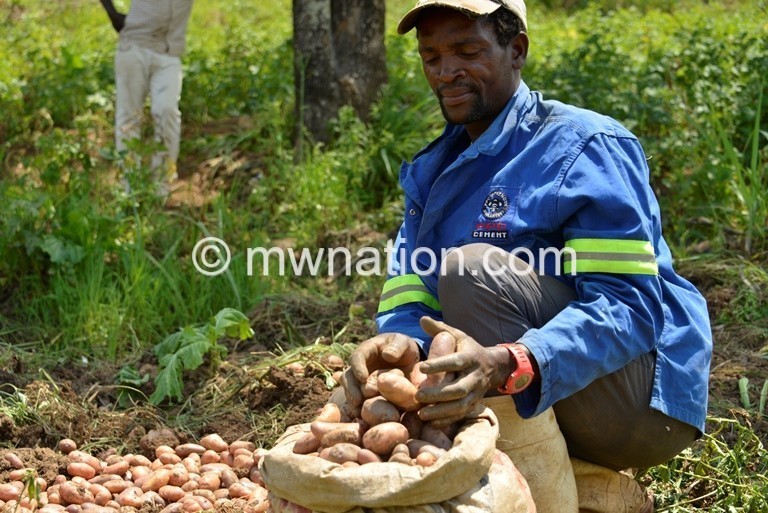Neno’s ‘garden of Eden’
One could not resist the chirping sounds of birds in the early hours of the morning. The chorus they created, punctuated by silence, was seemingly eternal.
Various species reflect the biodiversity of the place. The beauty transcends the mind and it is easy to understand why I braved the biting early morning cold to get a glimpse of this heart-stopping beauty.

This is the story of some villages in Neno where communities are warned against making charcoal or timber. If found, they are asked to pay a fine before being evicted from the village.
The environment is just intact. Walking about 12 kilometres from Ligowe Trading Centre in the district, I could not see a bag of charcoal. Nobody was seen making or selling charcoal.
Traditional Authority (T/A) Dambe said: “The people here actually don’t know how to make charcoal.”
“Even myself, I don’t know how charcoal is made. That has made our trees grow.”

The chief said he introduced by-laws in 2005 to counter deforestation in the area. Corresponding penalties include a live goat and banishing of the convict from the village. When evicted, the wrongdoers’ land is given up for more afforestation exercises.
“In the past, people were moving to rural areas for charcoal production,” he said. “Therefore, we wanted to protect our trees by coming up with by-laws before it was too late. I am glad the decision is paying dividends.”
With the chief firm in implementing bylaws, nobody was coming again for charcoal in his area.
“I can confirm that the environment you see today has been there before I was born. We have managed to sustain the environment,” Dambe boasted.
Currently, about 13 villages in group villages Chikalima, Chakhumbira, Soka, Mpusadala and Chakulembera are intact, the environment is just the same as it was during Kamuzu Banda time over 25 years ago.
Living in abundance
Despite the heart-stopping beauty in T/A Dambe’s area, the area has been cut off from civilisation. To get there, one requires a four-wheel drive and sufficient supplies, including fuel and food.
However, the importance of preserving the nvironment is easily noted to anyone visiting the area.
The communities have no boreholes, but are able to survive through the water springing out of the mountain.
They are consuming potable water following a project that tapped the spring water into pipes. Farmers are able to grow crops at any season.
“It has been like this since I born,” said Chilim’bondo Ward councillor Montfort Bwanali. “We have water everywhere.”
People in the community are able to eat wild fruits like nthudza, mpinjipinji, mbirima, mchenje, watermelon, lemons, mushroom and lychee. They also have wild animals moving around in most places.
Positive yields
Without rains, farmers are able to grow crops at any time. The area is yet to receive rains, but they already planted maize.
“It has been like this since a long time ago,” said a maize and banana farmer Stephano Joseph.
Joseph is now in a second farming season this year.
“The second crop will be harvested end of December and I will plant another crop for rainy season,” he said.
Petro Phanga has been growing Irish potatoes for 11 years now. He comes from Chakhumbira Village in the district.
He has about five acres of farmland where he grows maize, beans and Irish potatoes. Through the same farming, he has built a house, he has goats and chickens and he bought a motorcycle.
“This year alone, I have harvested 50 bags of Irish potato. I made over a K1 million after selling,” said Phanga.
The farmer has no time to think of charcoal production.
“I don’t know how people make charcoal,” adding: “I do farm and it is fine with me, I make a lot of money through it. I am able to take care of my family through farming.”
T/A Dambe, who stays about 34 kilometres away from Neno Turn-Off, is a happy chief to see his area maintaining the greenery.
“At first, people blamed me, but today they are reaping good fruits. We only allow people to cut down trees if they want to clear the land for cultivation.
“They are not allowed to make charcoal with those trees and I have never seen anyone making charcoal here,” he said.
Dambe said he recently received reports that some people from Mulanje, Phalombe and Thyolo encroached his area and are cutting timber.
“We are hunting for them and very soon you will receive a report that we have chased them,” he warned.





